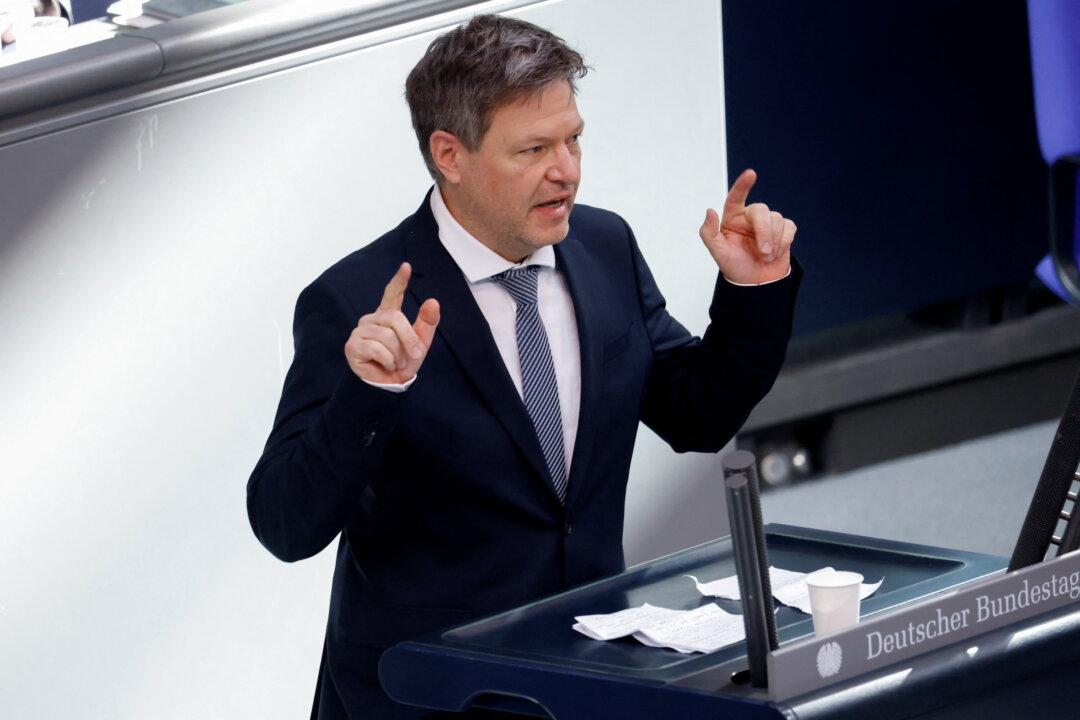FRANKFURT—Germany is weighing whether to extend the life-span of its remaining nuclear power plants as a way to secure the country’s energy supply in the face of uncertainty over Russian gas supplies, the country’s economy minister said.
Asked by German broadcaster ARD whether he could imagine letting nuclear plants run longer than planned under Germany’s exit plan, which foresees shutting down the country’s three remaining plans by the end of 2022, Robert Habeck (Greens) said: “It is part of my ministry’s tasks to answer this question. I would not reject it on ideological grounds—but the preliminary examination has shown that it does not help us.”





